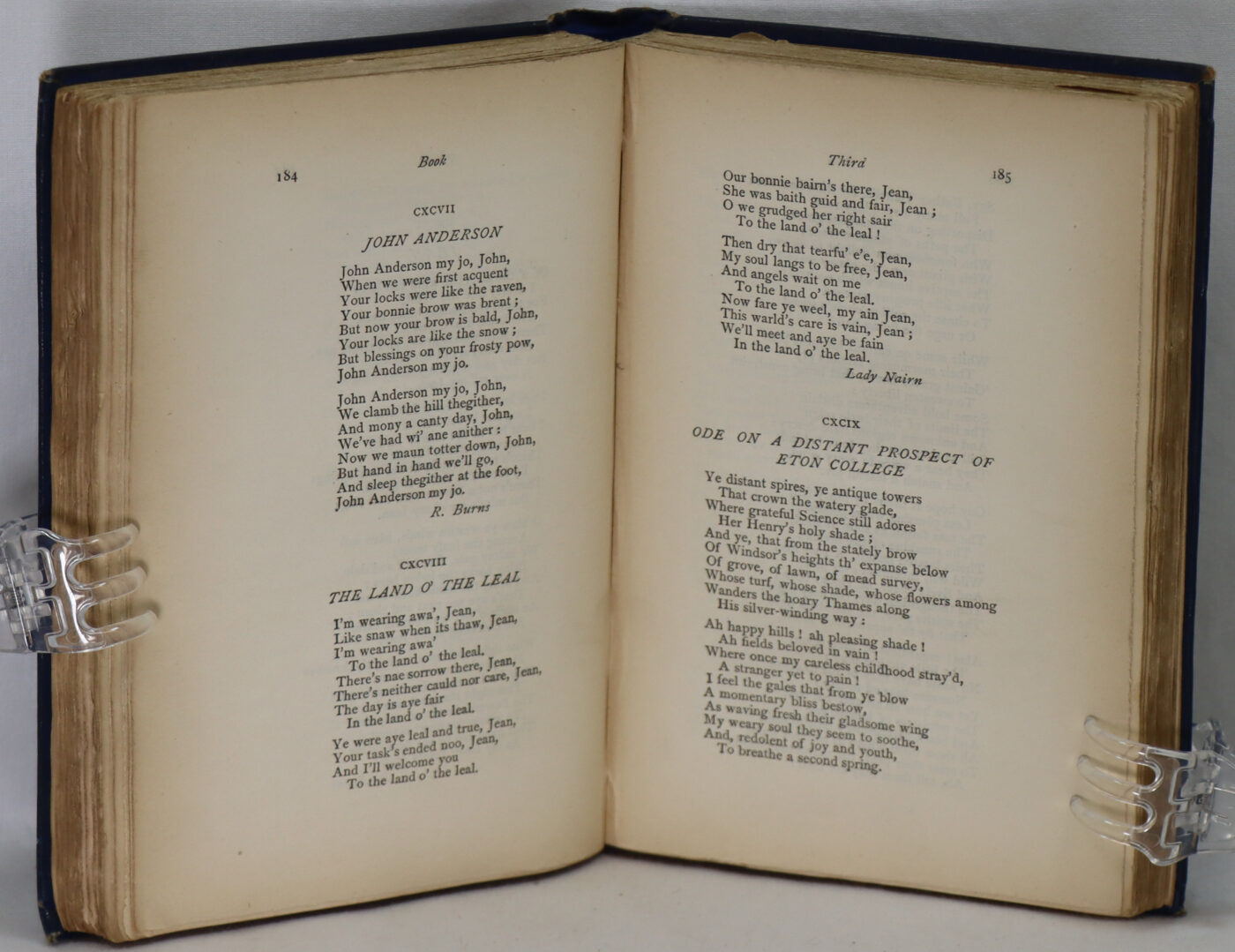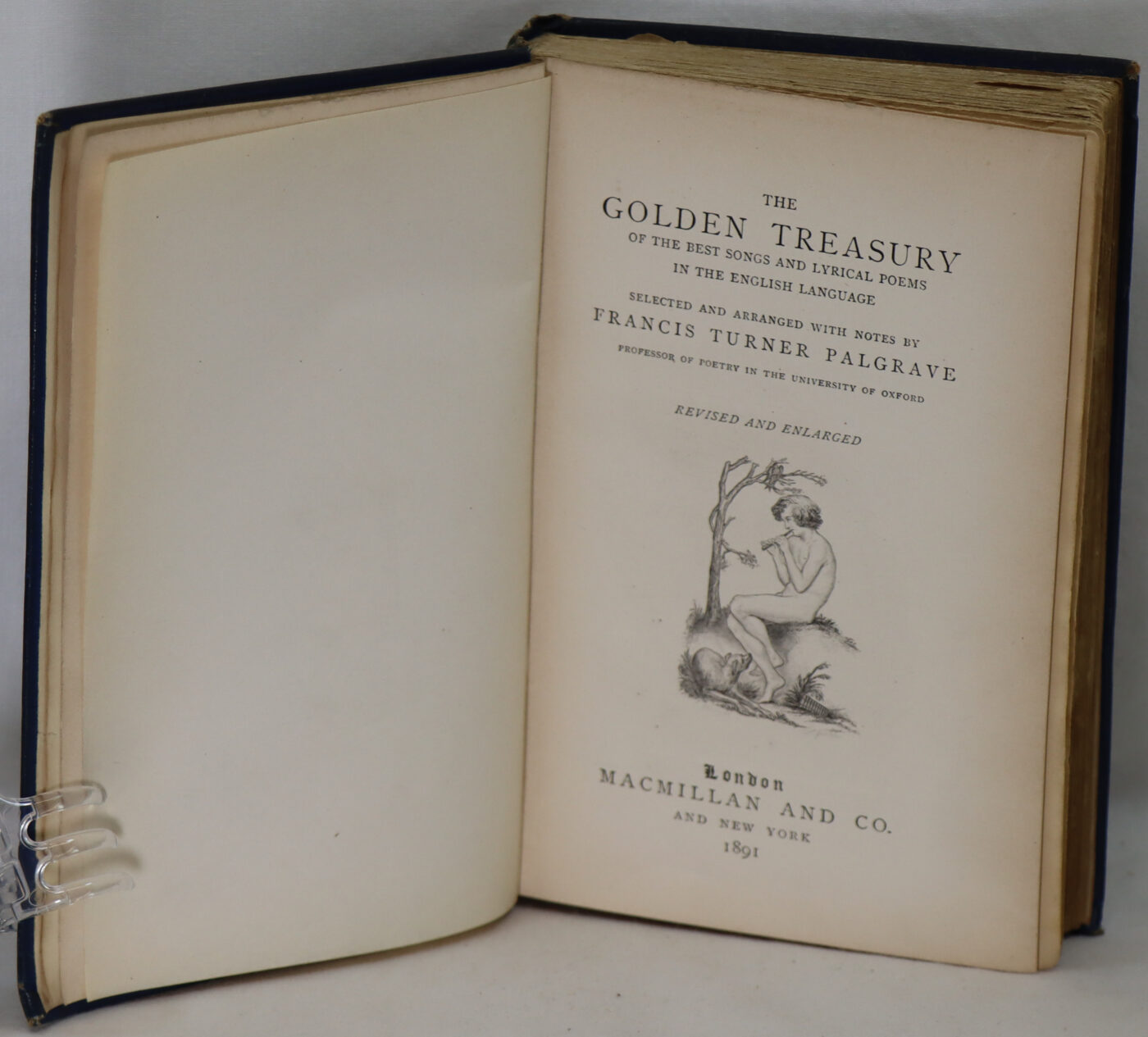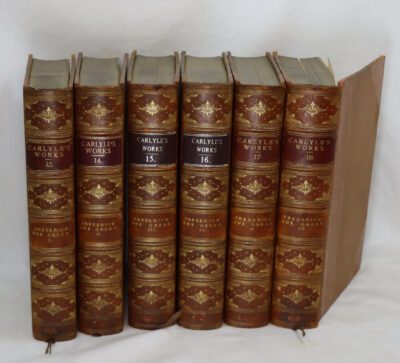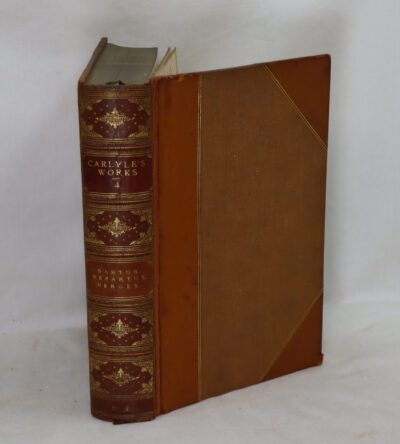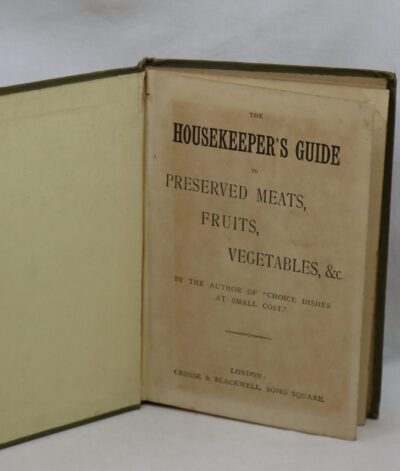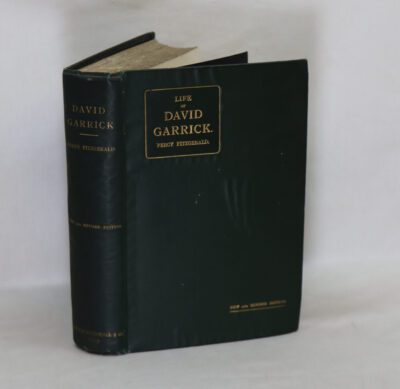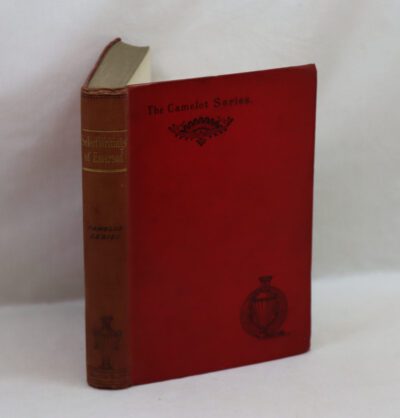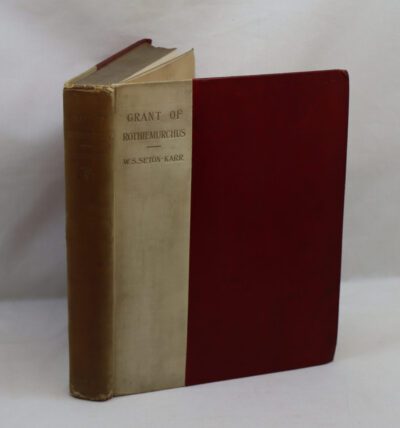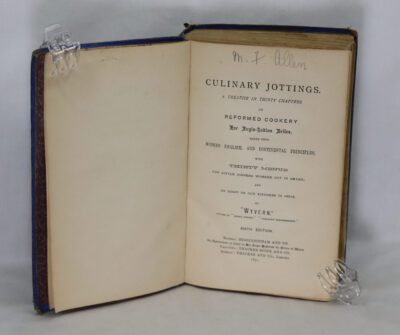Golden Treasury of Songs and Lyrics.
By Francis Turner Palgrave
Printed: 1891
Publisher: Macmillan & Co. London
| Dimensions | 11 × 17 × 2 cm |
|---|---|
| Language |
Language: English
Size (cminches): 11 x 17 x 2
Condition: Very good (See explanation of ratings)
FREE shipping
Item information
Description
Hardcover. Navy cloth binding with gilt title on the spine.
We provide an in-depth photographic presentation of this item to stimulate your feeling and touch. More traditional book descriptions are immediately available
- Note: This book carries a £5.00 discount to those that subscribe to the F.B.A. mailing list
For conditions, please view our photographs. A nice clean rare copy from the library gathered by the famous Cambridge Don, computer scientist, food and wine connoisseur, Jack Arnold LANG. Jack also founded the Midsummer House, Cambridge’s paramount restaurant.
The Golden Treasury of English Songs and Lyrics is a popular anthology of English poetry, originally selected for publication by Francis Turner Palgrave in 1861. It was considerably revised, with input from Alfred, Lord Tennyson, about three decades later. Palgrave excluded all poems by poets then still alive. The book continues to be published in regular new editions; still under Palgrave’s name. These reproduce Palgrave’s selections and notes, but usually include a supplement of more recent poems. Christopher Ricks in 1991 produced a scholarly edition of the original Treasury, along with an account of its evolution from 1861 to 1891, with inclusions and exclusions. This 1891 version was considered by Ricks to be Palgrave’s best though it is generally considered not to be his most collectable. Note: The title page vignette is after the sculptor Thomas Woolner, a friend of Tennyson’s, who shared a house with Palgrave in the early 1860s; it appears to be a self-portrait in the guise of a Pan-like figure fluting beneath a sapling and was engraved exquisitely by C. H. Jeens, whose work for Macmillan “earned him notice as one of the miniaturists of engravers, and in some ways a follower of Bartolozzi”
Francis Turner Palgrave (28 September 1824 – 24 October 1897) was a British critic, anthologist and poet. Palgrave published both criticism and poetry, but his work as a critic was by far the more important. His Visions of England (1880–1881) has dignity and lucidity, but little of the “natural magic” which the greatest of his predecessors in the Oxford chair considered to be the test of inspiration. His last volume of poetry, Amenophis, appeared in 1892. His criticism is considered to demonstrate fine and sensitive tact, quick intuitive perception, and generally sound judgment. His Descriptive Handbook to the Fine Art Collections in the International Exhibition of 1862, and his Essays on Art (1866), though flawed, were full of striking judgments strikingly expressed. Nonetheless the critic John Ruskin wrote in 1855 on his History of Painting, “I think it is a most valuable contribution.” Palgrave was immediately encouraged to write History of Engraving which was completed in quick time, and hailed as a masterpiece. His Landscape in Poetry (1897) showed wide knowledge and critical appreciation of one of the most attractive aspects of poetic interpretation. But Palgrave’s principal contribution to the development of literary taste was contained in his Golden Treasury of English Songs and Lyrics (1861), an anthology of the best poetry in the language constructed upon a plan sound and spacious, and followed out with a delicacy of feeling which could scarcely be surpassed. Palgrave followed it with a Treasury of Sacred Song (1889), and a second series of the Golden Treasury (1897), including the work of later poets, but in neither of these was quite the same exquisiteness of judgment preserved. Among his other works were The Passionate Pilgrim (1858), a volume of selections from Robert Herrick entitled Chrysomela (1877), a memoir of Arthur Hugh Clough (1862) and a critical essay on Sir Walter Scott (1866) as a preface to an edition of his poems. He published a small collection of hymns in 1867 which ran to three editions, each slightly enlarged. Palgrave was also a hymn-writer using the words, on one occasion, the Elizabethan version of 120th Psalm “O Thou not made with hands” into a hymn. The highly poetical “Little Child’s Hymn” held great sentimental meaning for his daughter and biographer Gwenllian.
Sir Christopher Bruce Ricks FBA FRSL (born 18 September 1933) is a British literary critic and scholar. He is the William M. and Sara B. Warren Professor of the Humanities at Boston University (US), co-director of the Editorial Institute at Boston University, and was Professor of Poetry at the University of Oxford (UK) from 2004 to 2009. In 2008, he served as president of the Association of Literary Scholars and Critics. He is known as a champion of Victorian poetry; an enthusiast of Bob Dylan, whose lyrics he has analysed at book length; a trenchant reviewer of writers he considers pretentious (Marshall McLuhan, Christopher Norris, Geoffrey Hartman, Stanley Fish); and a warm reviewer of those he thinks humane or humorous (F. R. Leavis, W. K. Wimsatt, Christina Stead). Hugh Kenner praised his “intent eloquence”, and Geoffrey Hill his “unrivalled critical intelligence”. W. H. Auden described Ricks as “exactly the kind of critic every poet dreams of finding”. John Carey calls him the “greatest living critic”.
Want to know more about this item?
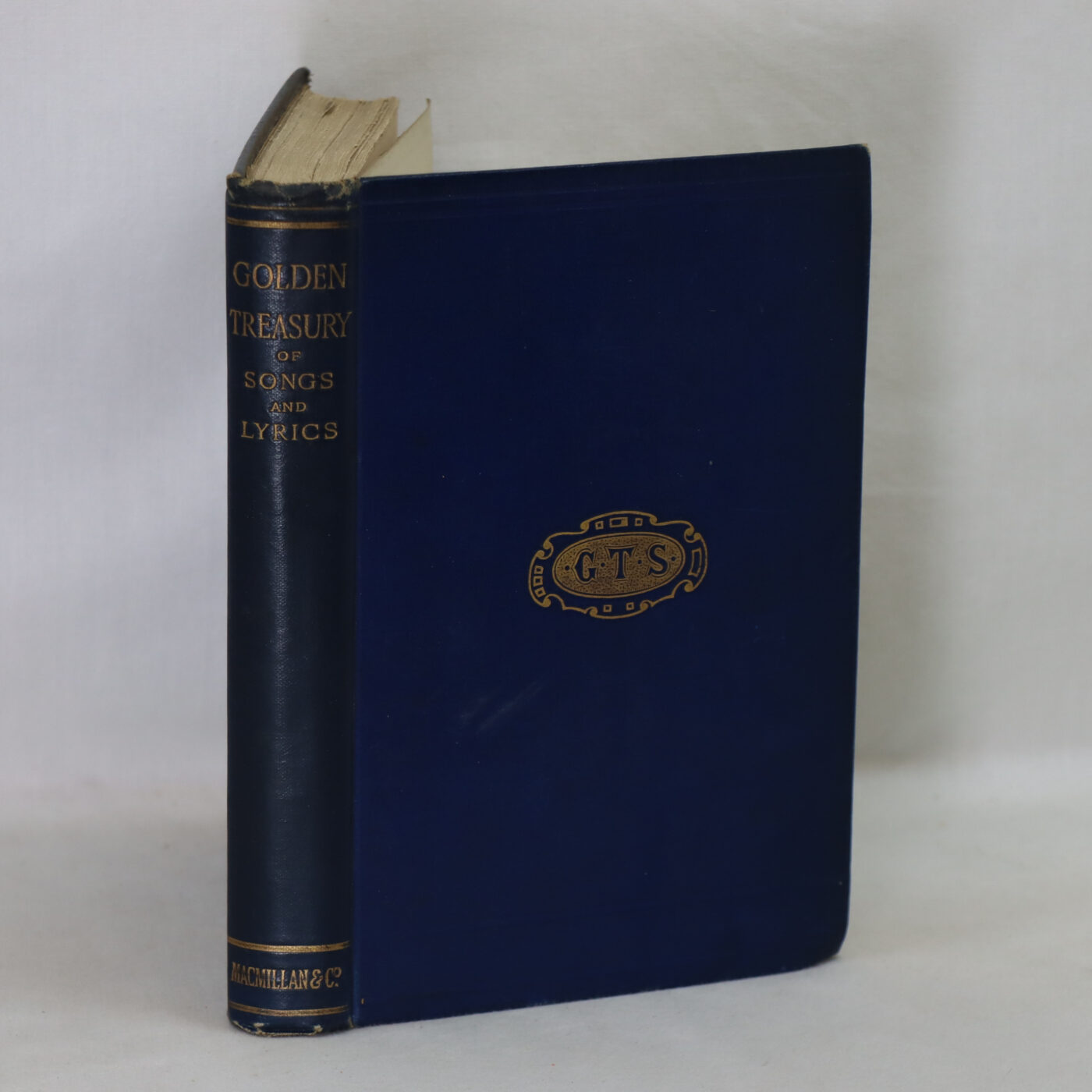
Related products
Share this Page with a friend

